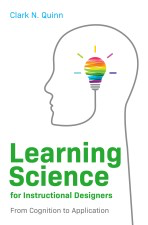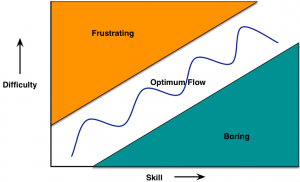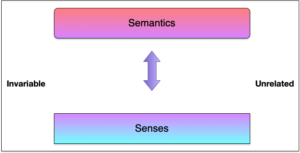Another video, this time (ok, again ;) about learning science.
They like me to do this to push the course, but I did hear the feedback on LinkedIn that the video format works. Nice to know. As always, also the script.
 And, announcing one other thing…
And, announcing one other thing…
I‘ve argued in an earlier post for the value of learning science, but I want to go a little deeper. I want to talk a little about the evolution, and a little bit about what‘s involved. It‘s about establishing the foundations of learning science.
And I‘ve mentioned in a previous post that learning science is interdisciplinary, and relatively new. While education had been proceeding for a long time, the approaches were ad hoc. Experimental science itself didn‘t emerge ‘til the medieval ages at the earliest. My take is that most of school still replicated what had been done since the Prussians invented school, somewhat modeled on religious lectures. The notion of scientific education had yet to emerge.
The first real systematic study of learning came from the field of educational psychology. Here, the focus was on schooling, and included cultural and motivational factors.
A different approach came from behavioral psychology roots. During World War II, the military was faced with training many soldiers, and behavioral psychologists created the field of instructional design. Here, the focus was more on training, including the influence of media and elements of instruction.
Learning science as a field was arguably created when the International Society for the Learning Science was created in the 1990s, perhaps sparked by the creation of the Institute of the Learning Sciences at Northwestern University. This is an integrative approach that looks beyond schools and training to more forms of learning including informal learning and even machine learning.
Having been involved in one way or another with all of these, I tend to create a synthesis. I think the care is cognitive science: how we process information. While there are neural underpinnings, most of the results and prescriptions operate at the cognitive level, or above. Within the information processing cycle we cover core processes like attention, elaboration, and retrieval. This is our core mental architecture.
Interesting results for learning emerge from this architecture, including the role of models and examples, and the core importance of practice. A post-cognitive perspective reflects that our thinking isn‘t formally logical, but instead is emergent, distributed, and social.
Two other important areas are the emotional aspects of learning, and meta-learning. The former is more the conative area of intent to learn, e.g. motivation and anxiety, rather than the affective area of personality. The latter has to do with learning to learn, including looking at our own learning processes.
All these affect the elements that contribute to learning. Our introductions, concepts, examples, practice, and closings should reflect what‘s known about learning. And the components of science and engagement need to be elegantly integrated to yield the best outcomes.
Of course, these foundations of learning science are what I cover in the learning science courses I‘m offering through HR.Com and the Allen Academy. Stay tuned for more ;).


